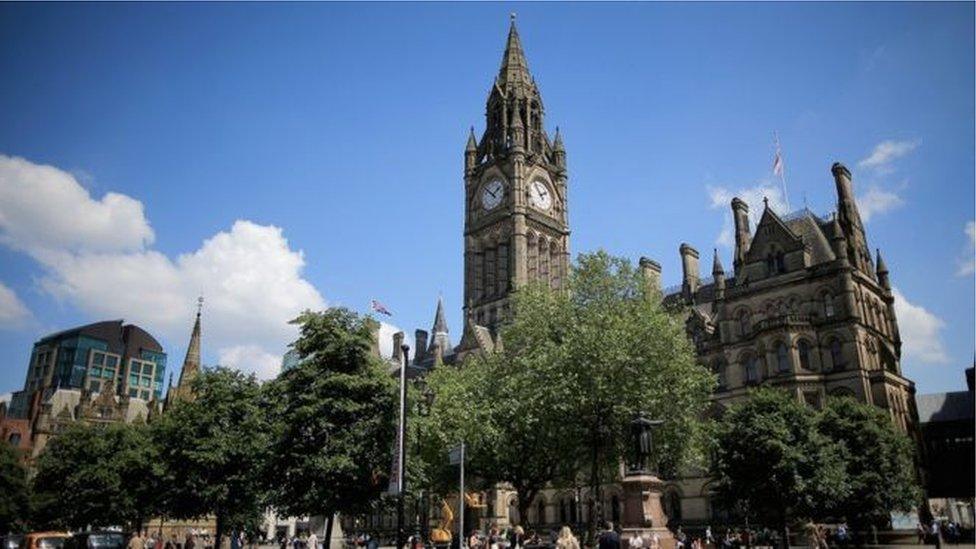Manchester City Council: BAME people under-represented in senior roles
- Published

Chief executive Joanne Roney said the authority needed to make sure "no-one feels left behind"
Black, Asian and minority ethnic people are under-represented in a council's senior roles but more likely to have grievances upheld, a report has found.
The independent review, ordered after a union accused Manchester City Council of institutional racism, found BAME staff "shared a disappointment" in the "lack of progress on race equality".
Equality activist Jeremy Crook said the council needed to take "robust action".
Chief executive Joanne Roney said it was "determined" to enact "real change"
The Local Democracy Reporting Service said the report, written by independent experts David Codner and Mags Bradbury, was ordered in April 2019, after BAME workers from the Unite union accused the authority of being "institutionally racist".
'Action and change'
The report's authors did not find that to be the case, but observed that while about a third of Manchester's general population was from BAME backgrounds, only a fifth of council staff were, with a significant over-representation in lower-paid roles.
It said BAME respondents to the review felt they did not have the same opportunities for career advancement as other staff, but were more likely to have have grievances upheld than white colleagues.
In conclusion, it said that while the sample of BAME staff "engaged in this review was limited... there is nonetheless a strong sense that the BAME participants shared a disappointment in what they saw as the council's lack of progress on workforce race equality, despite a long-term public commitment to equality and diversity".
It's authors also made a number of recommendations to the council, including advising the authority to provide clearer pathways to promotion for BAME staff and to encourage BAME workers to become involved in the recruitment and interviewing of new staff.
In response, Mr Crook, who works as a director for the Black Training and Enterprise Group, said all councils "must involve their BAME communities".
He said it was clear BAME and white communities "want to see action and change" and urged the council to "examine their workforce, services, and grants data to identify any organisational ethnic bias and discrimination".
Ms Roney said the council was "determined that this will be a moment of real change".
She said there was evidence that more staff were "feeling positive about working for the council" and about their personal development opportunities, but the authority needed to make sure "no-one feels left behind".